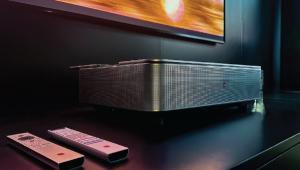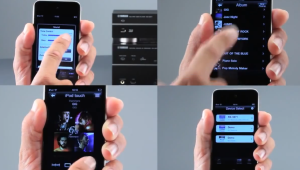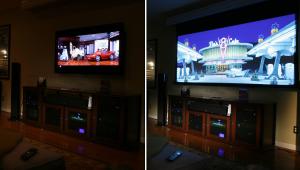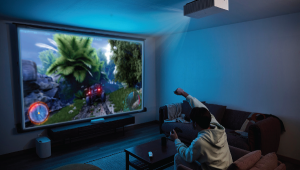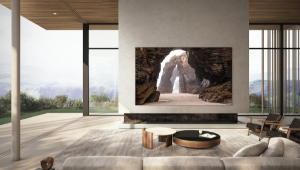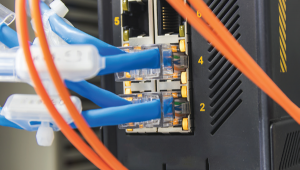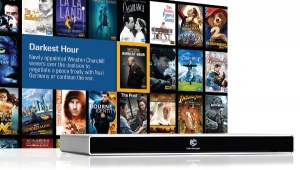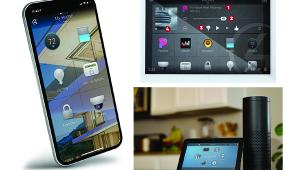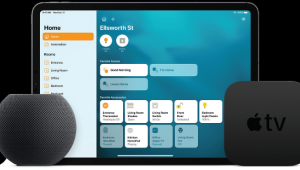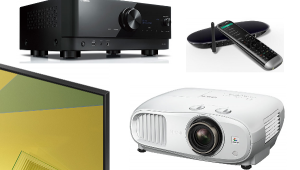Microsoft Achieves Complete Home Domination
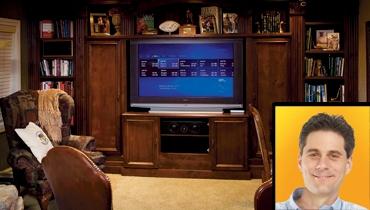
You may consider Jim Carrey to be many things - comedic genius, overpaid goofball - but technological futurist probably isn't one of them. However, his prediction in the 1996 movie The Cable Guy has proved to be surprisingly accurate: "The future is now! Soon every American home will integrate their television, phone, and computer… You can do your shopping at home or play Mortal Kombat with a friend in Vietnam. There's no end to the possibilities!"
That level of integration is definitely happening, and on a scale that even the prescient Cable Guy couldn't have imagined. We can largely thank Microsoft, which has zealously pursued its vision of making the computer the hub of the digital home. The Windows Media Center functions that come as part of the Vista operating system were designed with widescreen, high-def viewing in mind. They feature some cool TiVo-like functionality, plus an undeniably slick interface that makes it incredibly easy to manage all of your music, photo, and video files.
In an effort to encourage installers to push the Media Center envelope, Microsoft started a competition for the ultimate Windows Media Center installation. Curious about Vista's qualifications as a home-control system and about what Microsoft has done to eliminate crashes and ensure stability, I talked to the 2007 Media Center Ultimate Install winner, Tyler Jennings, president of Imperium Smart Systems in Herriman, Utah, and to Microsoft's principal program manager, Kevin Collins.
Jennings has been installing Media Centers since 2005. His winning installation was a retrofit of an 8,500-square-foot home that played into Media Center's strong wireless capabilities. Jennings said the homeowner wanted "management of the family's music, pictures, recorded programming, and DVD movie library. LifeWare home-automation software, which is a Windows Media Center add-on, enabled the installation to go beyond entertainment to include management of all of the home systems, including lighting, surveillance, heating, and cooling."
One area where Media Center really differentiates itself from other automation systems is the programming and integration time. Whereas it can cost tens of thousands of dollars to program other systems, Media Center's open architecture and plug-and-play nature lend themselves to faster integration. "Every piece of the install, from the first steps of planning and design all the way to training the clients, is a piece of cake," Jennings said. "Media Center has made each home-automation install, no matter the scope and size of the project, repeatable and consistent." Media Center's interface is one of its biggest strengths. "I've been to too many homes where people have spent thousands of dollars on an automation and entertainment system, only to let it sit there because it's not easy to use," Jennings said. "But customers are tremendously satisfied with Media Center. It's a very intuitive interface, and learning how to navigate the program is a breeze. So many customers have nothing but good things to say about it."
With Media Center extenders in place, every TV in the house can be a controller, and there's a variety of traditional in-wall touchpanels that can integrate with Media Center. Also, laptops and many Web-enabled devices like Blackberrys and iPhones can become mobile controllers, offering inexpensive alternatives to touchpanels and remotes.
But the operating system's stability is a huge sticking point for many people when it comes to using a PC as a whole-house controller. The idea of having to control-alt-delete before you can turn on your lights is enough to give anyone pause. Microsoft's Collins addressed the reliability question head-on: "Probably the biggest drawbacks are when an installation isn't done properly or when a Media Center is recommended to be used as a multipurpose PC."
In my February/March 2006 column, I wrote: "A computer is the perfect hub for future entertainment experiences. The Xbox 360's Media Center functions point to the future and have me willing to make a bold prediction: You will incorporate a computer into your A/V system in one way or another." While that statement might not put me in the company of futurists like H. G. Wells, Marshall McLuhan, or Jim Carrey, you can't help but wonder what the next few years will bring.


